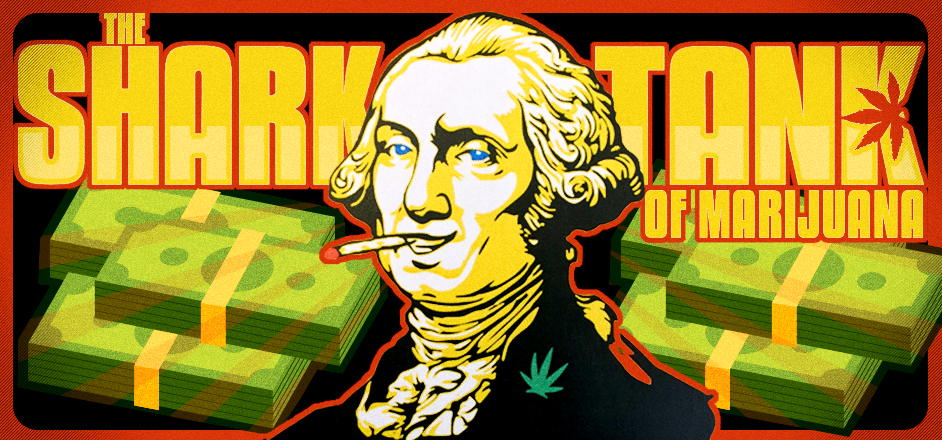The best businesses on Shark Tank (the ABC reality show matching hungry startups with greedy investors) have an elevator pitch, their idea boiled down to one irresistible sentence.
The Marijuana Show — now in its second season and streaming on Amazon Prime — has it: it's the "Shark Tank For Weed."
Especially if you're in the marijuana business, the show might strike you as a step up from Shark Tank. Because while the megawatt stars aren't there, it's more than just manufactured reality show drama. It highlights the enormous (and still somehow under-tapped) potential of the cannabis plant, and of those who love it.
On the show, hopeful business people from every corner of the cannabis world compete to sell a percentage of their company in exchange for an investment from established industry people, including Jamie Perino, co-founder of Euflora cannabis dispnsaries; Brian Ruden, owner of Starbuds; and Joel Sherlock of Doventi Capital, which invests in legal weed.
It's reality TV that feels very real. And, as Karen Paull, one of the producers and hosts, points out to us, they offered more money to contestants than Shark Tank one season. "We smoked Shark Tank," she says.
What are the pitches, you ask? A car made from hemp, doggie CBD biscuits, a new pesticide, cannabis-infused bitters and a whole lot more. The pitches come from all kinds of people, from a 10-year-old whose dad is in prison for possession, to the infamous Alaskan news reporter who virally quit her job to start a dispensary by saying, on air, "Fuck it," to a guy who was saved from seizures by CBD, to a woman whose relative had his dementia soothed by blazing up.
Paull and her wife Wendy Robbins created, produce and host The Marijuana Show. Robbins is an Emmy-winning filmmaker who once created a head-massager called "The Tingler" — one that's sold one million units. And Paull was an executive at the photo-sharing site Snapfish, which sold for $300 million in 2005. Together, they know a thing or five million about getting a profitable product to market, which makes their expertise all the more interesting as they sort through contestant's weed inventions.
They do feel like the Millionaire Godmothers of Pot, as the Advocate called them. "We don't have kids, so all the contestants on our show are like family to us," Paull says.
These days they're out on the road, looking for contestants for season three, which should start streaming on Amazon in the fall. Out of thousands of applicants, they'll choose 10. They're searching for more diversity this time: more women, more established businesses.
For the record: they don't want to see your edibles. There's enough edibles out there already, they say. Rather, they're looking for new innovations, products and people who will push the marijuana industry forward. They've been impressed with a group of moms who use cannabis as medicine for their kids, as well as inventors of online retail sites and a new decarboxylator. (We know you know what a decarboxylator is.)
Perhaps that's why "The Marijuana Show" is so chock-full of examples of how great the marijuana business can be. After all, we're talking about a plant that has surpassed our wildest expectations of it. So far, it's been used to improve orgasms — yes, Foria the weed lube actually works better than Big Pharma's "female Viagra" — gotten a generation of young people interested in botany and organic agriculture, and given great jobs and purpose to people with real problems, and who find in it real solutions.
The Marijuana Show is holding auditions for its third season, in which the show is looking to sink $20 million into small pot operations. If you think you have a weed idea that could be worth millions, by all means, sign up for an audition here.
Also, they have free classes going to learn how to market yourself. Check them out here.




Leave a Reply